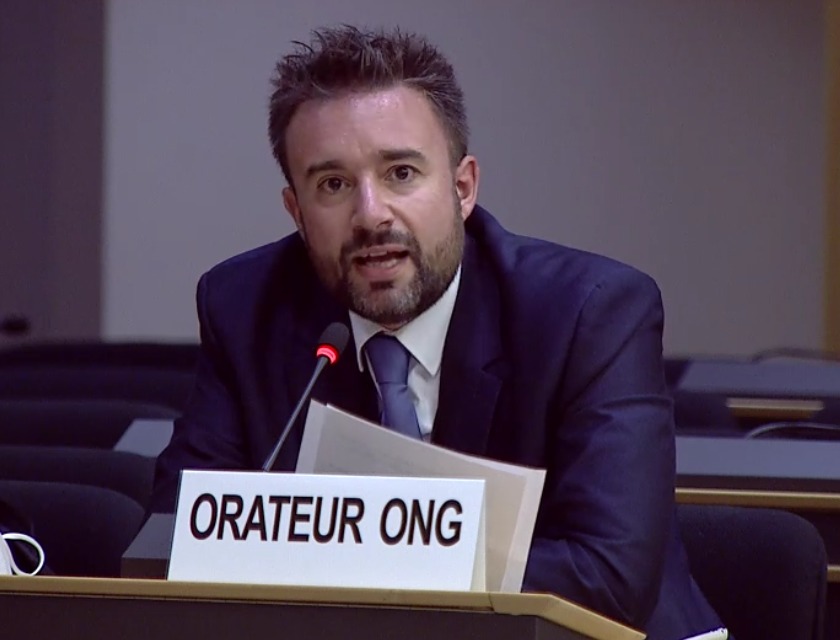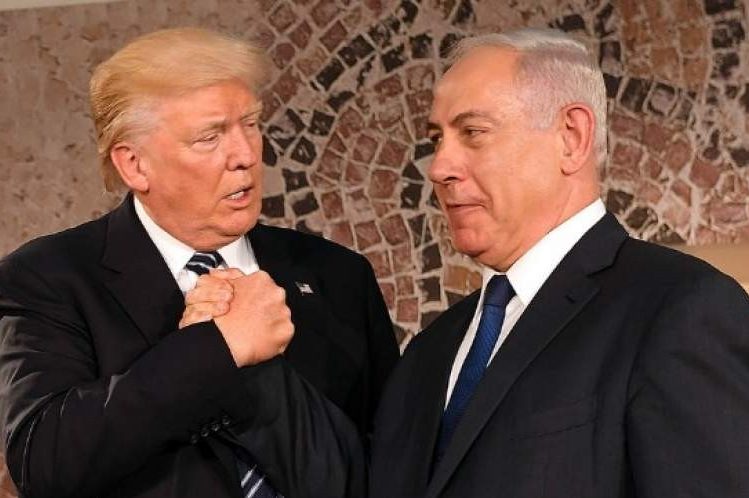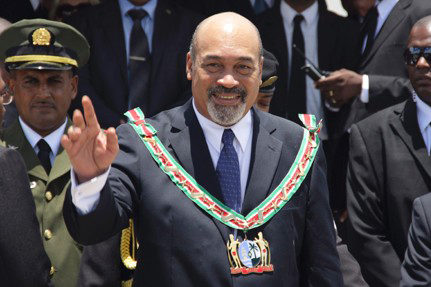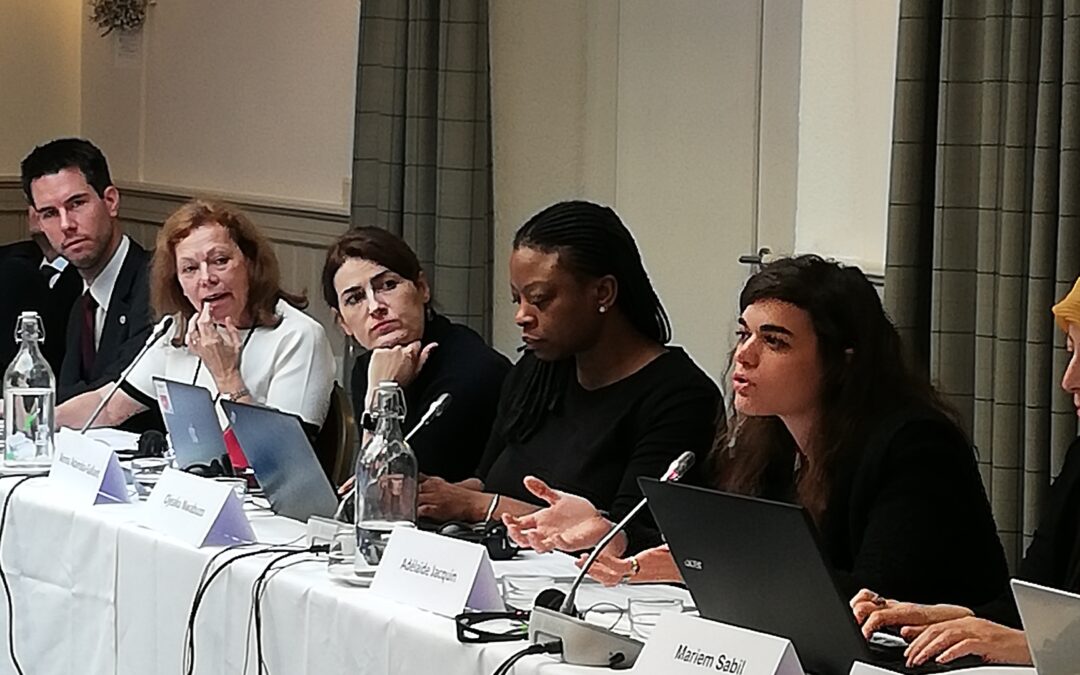
Sep 21, 2020 | Advocacy, Non-legal submissions
At the interactive dialogue with the Working Group on Enforced and Involunatary Disapparances during the UN Human Rights Council in Geneva, the ICJ has called on Tajikistan and Turkey to comply with the recommendations by the Working Group and to end practices of abduction and forced return.
The Chair of the Working Group on Enforced and Involuntary Disapperances in his replies to the questions pressed Turkey to implement the recommendations of the Working Group’s report.
The oral statement read as follows:
Mr Vice-President
The International Commission of Jurists (ICJ) welcomes the report by the Working Group on the follow up of its recommendations on its visit to Turkey (A/HRC/45/13/Add.4) and shares its concerns at the lack of implementation by the Turkish authorities and at the State-sponsored practice of “abductions and forced returns” (para 8). The ICJ agrees with the Working Group that a critical factor that fosters impunity in Turkey is “the lack of judicial independence and impartiality” (para 17).
The ICJ also welcomes the Working Group’s report on Tajikistan (A/HRC/45/13/Add.1). The ICJ shares its concern at the forcible return of Tajikistan nationals to the country, involving enforced disappearances (para 53), the harassment of lawyers (para 9) including the lengthy imprisonment of Buzurgmehr Yorov and Nuriddin Makhkamov, the obstruction of lawyers’ access to detainees, and inadequate judicial review of detention (para 47).
The ICJ urges both countries to fully implement the recommendations of the Working Group and particularly:
- on Tajikistan, to end forced return of their nationals, and to ensure prompt and confidential access to lawyers for detainees and prompt and independent judicial review of detention.
- on Turkey, to stop all practices of abduction and forced return from other countries and to restore the independence of its judiciary.

Mar 5, 2020 | Advocacy, Non-legal submissions
The ICJ today expressed concern at violations of human rights perpetrated in the name of countering violent extremism, and at attempts by some States at the Human Rights Council to dilute its focus on human rights while countering terrorism and the human rights of victims of terrorism.
The statement, delivered during an interactive dialogue with the UN Special Rapporteur on the promotion and protection of human rights and fundamental freedoms while countering terrorism, read as follows:
“The International Commission of Jurists (ICJ) welcomes your report on “Human rights impact of policies and practices aimed at preventing and countering violent extremism” (A/HRC/43/46).
The ICJ shares concern at the growing range of measures that restrict human rights, adopted in the name of the opaque and contested concepts of countering or preventing violent extremism. At the Council, certain States push for agreed language on suppression of terrorism to be cut-and-pasted to apply to “violent extremism”, and then eventually to all “extremism” whether violent or not, without definitions. As your report documents, at the national level this translates into overbroad, unjustified, arbitrary, and discriminatory measures, with particular impacts on civil society, especially human rights defenders, and from a gender perspective.
We also share the view expressed at para 51 of your report, that the current draft report of the Human Rights Council Advisory Committee on “the negative effects of terrorism on the enjoyment of human rights”, remains fundamentally flawed. Any discussion of “effects of terrorism” at the Council should exclusively focus on a human-rights based approach to victims of terrorism, consolidating work already undertaken by successive Special Rapporteurs and other UN and regional entities, as collected in a compilation published recently by the ICJ.[1] The Council must not allow its attention and limited resources to be diverted away from the human rights of victims of terrorism and protecting human rights while countering terrorism, to more diffuse questions of a macro-economic or budgetary character or duplicating work of other bodies.”
[1] See https://www.icj.org/victimsofterrorism2019/ and https://www.icj.org/icj-highlights-rights-of-victims-of-terrorism-to-un-delegations/

Jan 30, 2020 | News
The “Peace to Prosperity” plan proposed by the United States, and developed in the absence of any meaningful engagement with Palestinian representatives, is not a serious means to solve the conflict between Israel and Palestinian, and all actors in the international community should reject it, the ICJ said today.
As presented, the Plan would pave the way for Israel to annex large portions of the occupied West Bank, including East Jerusalem, and deny the Palestinians the internationally protected right to self-determination as well as the right to return of Palestinians. In addition, it seeks to legitimize the acquisition of land by force, all in violation of international law and the UN Charter.
On 28 January 2020, US President Donald Trump publicly announced the plan at the Whitehouse in Washington, with Israeli Prime Minister Benjamin Netanyahu at his side.
“The US plan is a political stunt that patently disregards international law and how the rights of Palestinians are recognized and protected under international law,” said Said Benarbia, the ICJ’s MENA Programme Director.
The ICJ emphasized that any claims of sovereignty by Israel over parts of the West Bank, including East Jerusalem, based on this plan would be null, void and of no effect.
The text of the US plan inaccurately asserts that Israel has “valid legal and historical claims over the West Bank” and notes that “[t]he State of Israel and the United States do not believe the State of Israel is legally bound to provide the Palestinians with 100 percent of pre-1967 territory.”
This position runs counter to numerous applicable UN Security Council Resolutions, including Resolution 242, which required Israel’s complete withdrawal from the territory occupied in 1967.
“Any settlement to the conflict between Israel and Palestine must be consistent with international law, including international human rights law and international humanitarian law,” Benarbia added. “This requires negotiations on an equal footing between the parties, optimally with broad international engagement, not simply an intervention by a single State.”
Israeli settlements are established in violation of article 49(6) of the Fourth Geneva Convention, which prohibits the Occupying Power from transferring its own population into the occupied territory.
Their eventual incorporation into Israel would amount to unlawful annexation, in contravention of the prohibition of territorial acquisition by force established by the UN Charter and international law.
The US plan posits that “Jerusalem will remain the sovereign capital of the State of Israel,” apportioning to the State of Palestine the areas of the city beyond the separation barrier. It also denies the right to return of Palestinian refugees.
Effectively making Israel’s occupation of parts of the West Bank permanent, the US plan further provides that Israel will maintain “overriding security responsibility for the State of Palestine” and that the West Bank and Gaza should be fully demilitarized.
Contact
Said Benarbia, Director of the ICJ Middle East and North Africa Programme, t: +41-22-979-3817; e: said.benarbia(a)icj.org

Dec 6, 2019 | News
Today, the ICJ has taken note of the 29 November 2019 conviction by the military and civilian chambers of a Court Martial (“the Court”) in Suriname of President Desiré Delano Bouterse and acquittal of others for crimes under international law relating to events that had taken place in December 1982 in Suriname.
The Court imposed a 20-year sentence of imprisonment on Bouterse, albeit it did not order an arrest warrant to be issued against him.
Bouterse and his co-accused faced charges of torture and murder — by means of extra-judicial executions – of 15 people – lawyers, journalists, soldiers, businessmen, academics and a trade union leader – who had been openly critical of the regime at the time, following a military coup led by Bouterse.
Bouterse, who remains the country’s President, was abroad when the Court delivered its verdict; he returned to Suriname two days later.
The ICJ is concerned at apparent efforts to circumvent the Court’s verdict. Since his conviction, Bouterse has made statements amounting to a deliberate undermining of the judicial process and rule of law, such as calling on the court to “come and get me”.
The ICJ further takes note that there is a possibility of appeal and calls on all parties to respect the rule of law and to allow the legal system to run its course, in accordance with international fair trial standards, without further delays, threats or other forms of executive interference.
Background to the 29 November 2019 verdict
The trial against Bouterse and his alleged accomplices began in 2007. On 19 July 2010, Desiré Delano Bouterse was elected President of Suriname, taking up office on 12 August 2010. On 4 April 2012, the country’s Parliament adopted an amendment to the 1989 Amnesty Law in existence at the time, which had the effect of granting an amnesty to President Bouterse and others in relation to any wrongdoing in connection with the December 1982 events. This led to a decision by the Court to suspend the trial of Bouterse and his co-accused indefinitely pending the establishment of the constitutionality or otherwise of the 1989 Amnesty Law. As the ICJ noted in its report of 29 May 2012, which followed an ICJ mission to the country to observe the trial, there were a number of unresolved questions regarding the legality of the 1989 Amnesty Law, including its incompatibility with Suriname’s international law obligations.
Since its initial mission in 2012, the ICJ has frequently expressed concern at the persistent delays in the proceedings. Eventually, in June 2016, the Court declared the 1989 Amnesty Law unconstitutional, and ordered the proceedings’ resumption; however, delays continued to beset the proceedings. On 2 August 2016, the Inter-American Commission on Human Rights expressed its deep concern about the then ongoing delays in the resumption of the trial. Eventually, by early 2017, the Court decided to have the charges put to the accused and ordered the prosecutor to read them out in court.
Persistent efforts by Bouterse to use his authority to have the trial declared a threat to national security or a danger to the country’s economic stability were unsuccessful, and the trial resumed, albeit with continued delays, prompting the ICJ to issue a further statement in May 2017 calling for the resumption of the trial without further delay.
Eventually, in June 2017, the public prosecutor issued his full list of charges against President Bouterse, accompanied by a request of a sentence of imprisonment of no less than 20 years on conviction, thereby moving to the trial phase proper of the proceedings.
Download
Suriname-Bouterse case-news-press release-2019-DUT (PDF available in Dutch)

Nov 29, 2019 | Agendas, Events, News
Today, in Brussels, the ICJ held a roundtable discussion on the impact of counter-terrorism laws on specific groups, including children, and ethnic and religious groups.
The roundtable brought together 34 judges, lawyers, NGOs and other experts from countries including Germany, France, Italy, the Netherlands, Poland, Belgium, Portugal, Romania, and Spain to discuss how the rights of children and of ethnic and religious minorities can be best protected in applying counter-terrorism legislation in the courts, especially in light of the EU Directive 2017/541 on Combatting Terrorism.
This was the last of four roundtables held by the ICJ and its partner organizations between April and November 2019 in the framework of the EU funded project “Judges Uniting to Stop Terrorism with International, Constitutional and European law (JUSTICE).”
The discussion in the first session of the roundtable addressed the disproportionate impact of counterterrorism laws on ethnic and religious groups. It focused on compliance with the principle of non-discrimination, through safeguards in legislation, in the judicial application of counter-terrorism laws, and in investigation and evidence gathering.
The second session of the roundtable addressed the particular impact of counter-terrorism legislation on children, including the challenges involved in protecting the human rights of children of “foreign fighters” and ensuring the primacy of their best interests in decisions on their return to EU countries. Participants also discussed protection of the human rights of returned children of “foreign fighters” both as victims of terrorism and where they are accused of crimes of terrorism.
See the agenda here.
This workshop was carried out with the financial support of the European Union and the Open Society Foundations. Its contents are the sole responsibility of ICJ and do not necessarily reflect the views of the European Union or the Open Society Foundations.









